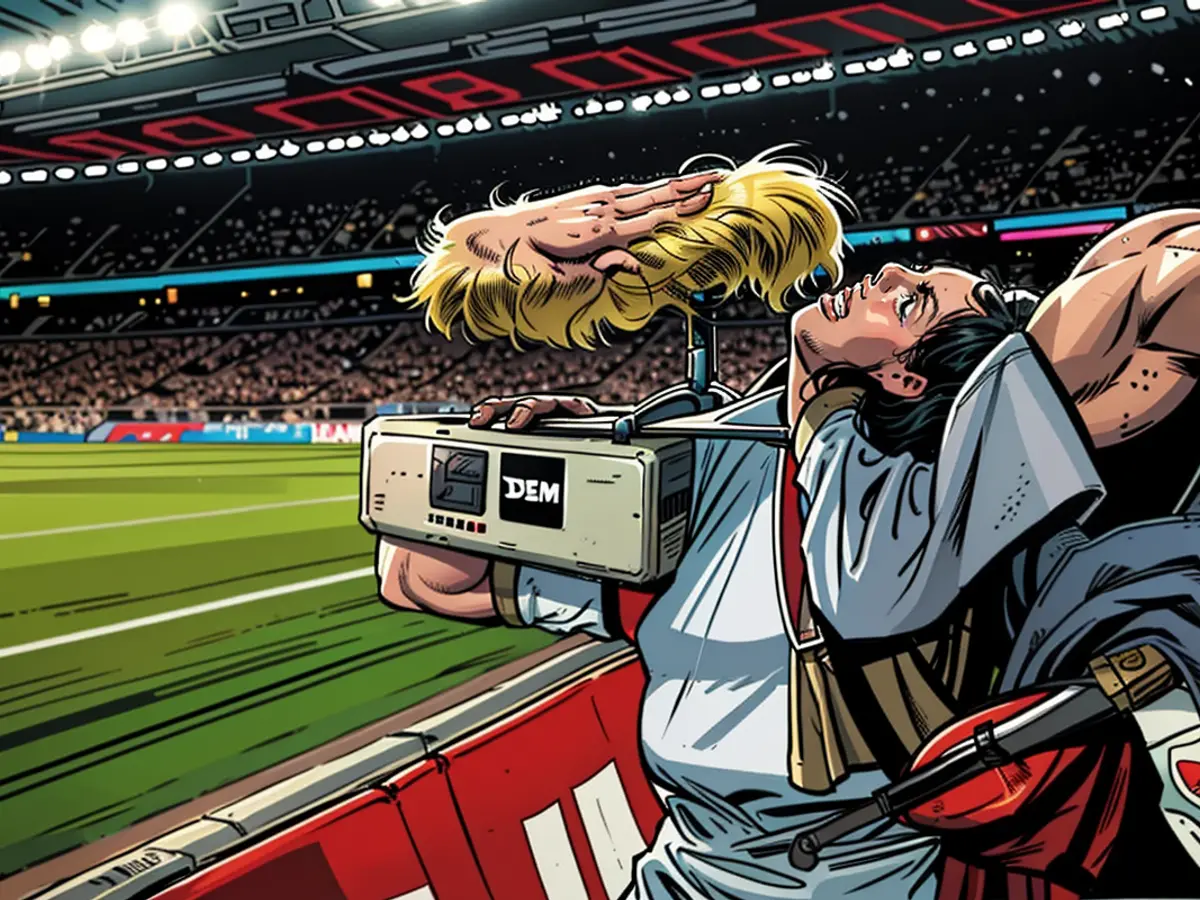The recent conflict between Sky and DAZN has unexpectedly brought joy to sports clubs.
Following the judgment in the disagreement between DAZN and the German Football League (DFL), the club leaders appeared in high spirits. The DFL executive was gearing up for a re-run of the multibillion-dollar poker game, and after the arbitral ruling, it became apparent that the clubs stood to reap significant benefits.
The clubs, spanning the first and second divisions, found themselves in a more advantageous position due to the resumption of the award of media rights. The clubs had braced themselves for a potential dip in revenues prior to the initial auction launch in the spring, but now an upturn seemed achievable. This shift was triggered by the knowledge, gained from the DAZN and Sky bids during the first attempt, of the opponents' maximum bids for the sought-after package B. Both bidders were now expected to raise their bids as they were determined to obtain the package at any cost.
Package B consists of approximately 196 games per season
In a statement, DAZN expressed their continued commitment as the best partner for the DFL, the clubs, and German football fans. Sky was even more direct: "We are confident that we can continue to provide our viewers with the finest Bundesliga experience and remain the leading sports provider."
Package B includes the 3:30 p.m. Saturday games, Friday night encounters, and relegation matches – a total of 196 games per season. The DFL had halted the auction of the German-language media rights for the four seasons, commencing from 2025/26 to 2028/29, due to the dispute with DAZN, as Sky was still in possession of the live broadcast rights until the end of the current season.
DAZN felt aggrieved as their offer, reportedly valued at 400 million euros per season, or 1.6 billion euros in total, was rejected despite its financial attractiveness. The DFL, however, declined to acknowledge DAZN's financial guarantees, which resulted in the award of package B to Sky upon the submission of a lower bid (apparently 320 million euros per season).
DAZN must hurdle yet another challenge
DAZN subsequently took the matter to arbitration court, winning a rescheduling of the auction. However, the DFL announced its acceptance of the arbitral ruling later in the evening, following a presidency meeting. It noted that it would assess the next steps "after thorough legal review in the coming days."
Sky is not the only challenge faced by DAZN – an additional hurdle lies ahead: the DFL's demand for a bank guarantee in the new auction regulations. The league associations stated that it would "consider" instances where "securities or confirmations" could become necessary in the bidding process. DAZN needs to surmount this additional challenge as compared to the first attempt.
Furthermore, the clubs, whose primary source of income is derived from media contracts, stand to gain from the added attention on the bids and the perceived value of the rights. This could attract fresh bidders, thereby outweighing the disadvantages of the delayed auction in terms of planning security. The revenue from the auction could potentially exceed expectations. The current seasonal intake for the clubs is approximately 1.1 billion euros. Nevertheless, the number of required subscriptions and the subscription fees remain as uncertain as they were in the first attempt.
The German Football League (DFL) announced that the clubs, including those from the first and second divisions, would benefit from the resumed auction of Package B, consisting of 196 games per season. DAZN, having taken their dispute to arbitration court, now faces an additional challenge in providing a bank guarantee as per the new auction regulations, set by the DFL.








